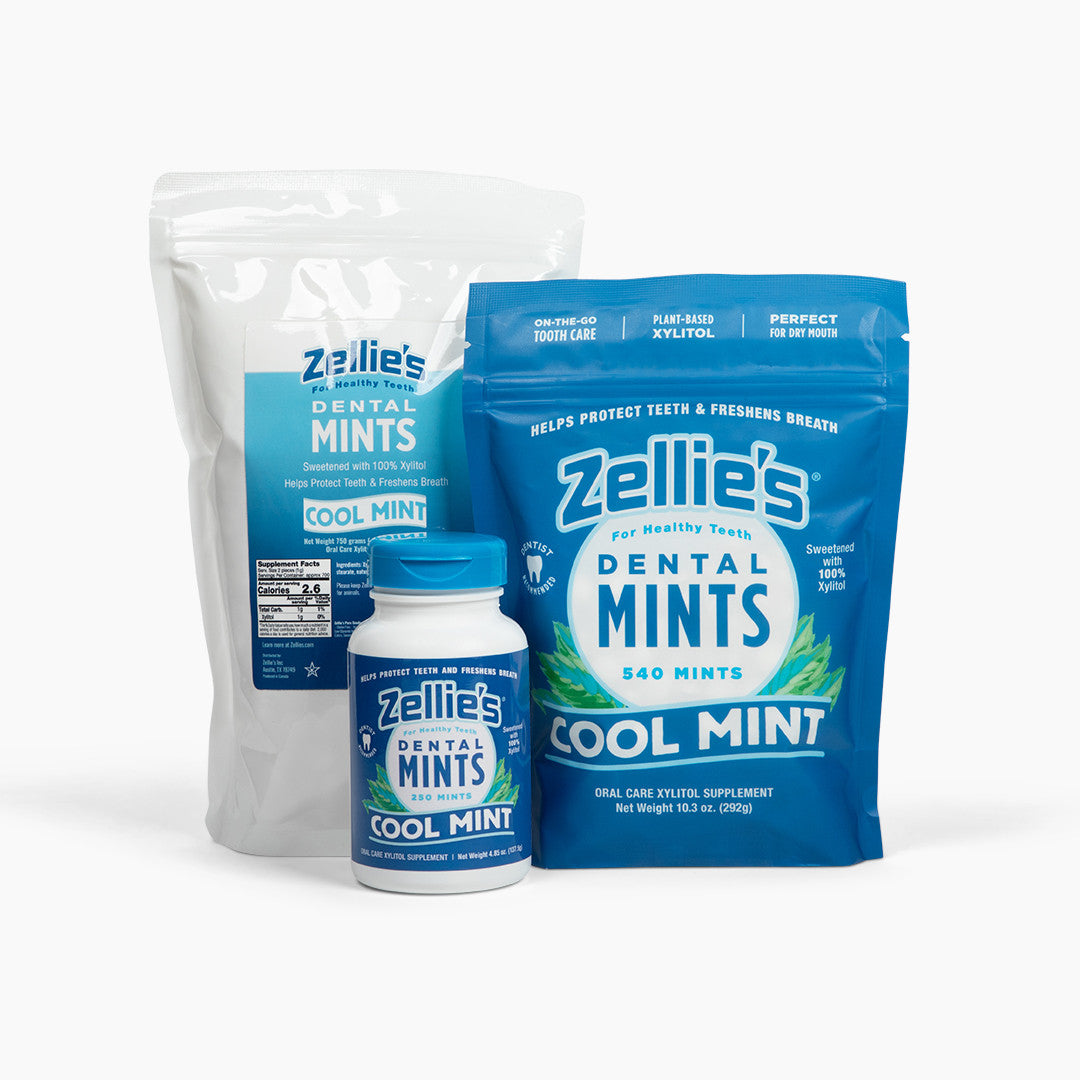Many people are unsure what an immune system actually is, where it’s located, or how it helps us fight disease and stay healthy. It’s an amazing system that is basically the control center of our body’s natural healing process. Its main hub is near our digestive tract but immune cells travel in body fluids and reach every area of our body, even our mouth - where immune cells circulate in saliva and help capture harmful bacteria and heal damaged gum tissues.
The healthier your immune system, the more benefit for your oral health!
Snacking and sipping interrupt this healing system for our mouth and gums. If you have acidic and mineral-deficient saliva or a dry mouth (insufficient saliva flow) then you will not have as much benefit and you may have a reduced ability to heal, or more chance of experiencing gum problems and damage. People with compromised immune systems need to take special care of their gums and teeth to avoid devastating mouth problems.
Stimulate Mouth Healing
Control sipping and snacking habits, since food and drinks – even water –will dilute saliva or reduce its healing ability. Hydration is important for health, but try to eat and drink at meals and designate adequate periods of time when you do not eat or drink during the day.
Anyone with cavities, sensitivity or gum problems should stop eating and drinking for a few hours after lunch. Saliva quality fluctuates to a daily or circadian rhythm, and its healing ability appears best in the afternoon. Saliva offers least protection at night while we are sleeping.
Do everything possible to boost your immune system, including:
- Eat a healthy diet that includes a wide variety of plants/vegetables
- Consider food-derived supplements to boost your immune health
- Use colon health probiotics to improve your digestive health – at least for a few months, and while your mouth heals
- Exercise gently but daily and consider saunas or massage to stimulate better circulation, so that immune cells and nutrients will be transported efficiently around your body. Nests of blood capillaries surround our salivary glands and it is here that essential nutrients and cells diffuse from the body and blood into saliva.
- Stress and eating in a hurried fashion can interfere with the absorption of nutrients from your diet. Try to find a comfortable place to enjoy your meals.
Your Saliva is The Answer
Healthy saliva is a naturally balanced liquid super-saturated with calcium and phosphates that have the capacity to repair and replenish any minerals that were lost from teeth.
Nothing manufactured comes close to the ability of healthy natural saliva to deliver minerals to teeth in this process called re-mineralization. Only when the amount of damage is greater than the ability of saliva to repair this damage does our dental health deteriorate.
Problems & Solutions
Problem of Dry Mouth
Medications and mouth breathing (because of a cold, sinus or allergy nasal problems) will dry your mouth, and there will be less saliva to float immune cells. People with dry mouths often experience gum disease and cavities, darkening of their teeth and sensitivity - problems that often get worse over time.
Problem of Acidic Mouth
Healthy saliva has a pH of 7.4. This is an ideal pH to support a healthy mouth ecology. Prolonged periods of acidity are detrimental to healthy mouth bacteria and promote harmful acid-loving bacteria that build dense plaque and cause tooth and gum damage.
Problem of an Infected Mouth
Harmful bacteria grow in acidic and dry mouth conditions. These bacteria are easily transferred to infect toothbrushes and also passed to other people - especially those you love - in droplets of saliva as we kiss, talk and share food.
The Solutions
- Use pure xylitol gum and mints frequently to control mouth acidity and also stimulate a flow of alkaline saliva. A xylitol mint is safe to eat during the night or before sleeping.
- Control long periods of acidity by using pure xylitol mints and gum. These are beneficial at the end of meals, after snacks.
- Use my Complete Mouth Care System to protect your teeth as much as possible.
- Avoid products (sensitive toothpastes, toothpastes with stannous (a tin based) fluoride, baking soda, peroxide or triclosan) that often damage saliva proteins or cause allergic reactions in gum tissues. The salivary proteins are a foundation to build a protective mouth biofilm and ecosystem. This is important for anyone with soft teeth, sensitivity, or prone to ulcers or mouth cancer.
- Ensure you hydrate but do not sip constantly – so that you do not dilute the healing power of saliva.
- Optimize the health of your saliva with a diet that includes a wide variety of plants/vegetables. Consider a food- derived supplement if necessary and also a course of colon health probiotics.
- A good oral probiotic (formulated with xylitol) may be helpful for people with a dry mouth or acidic saliva. Use this only after you have implemented all the other changes, as an oral probiotic is more of a “treatment for the symptom” than a solution to the deeper rooted and underlying problems.






